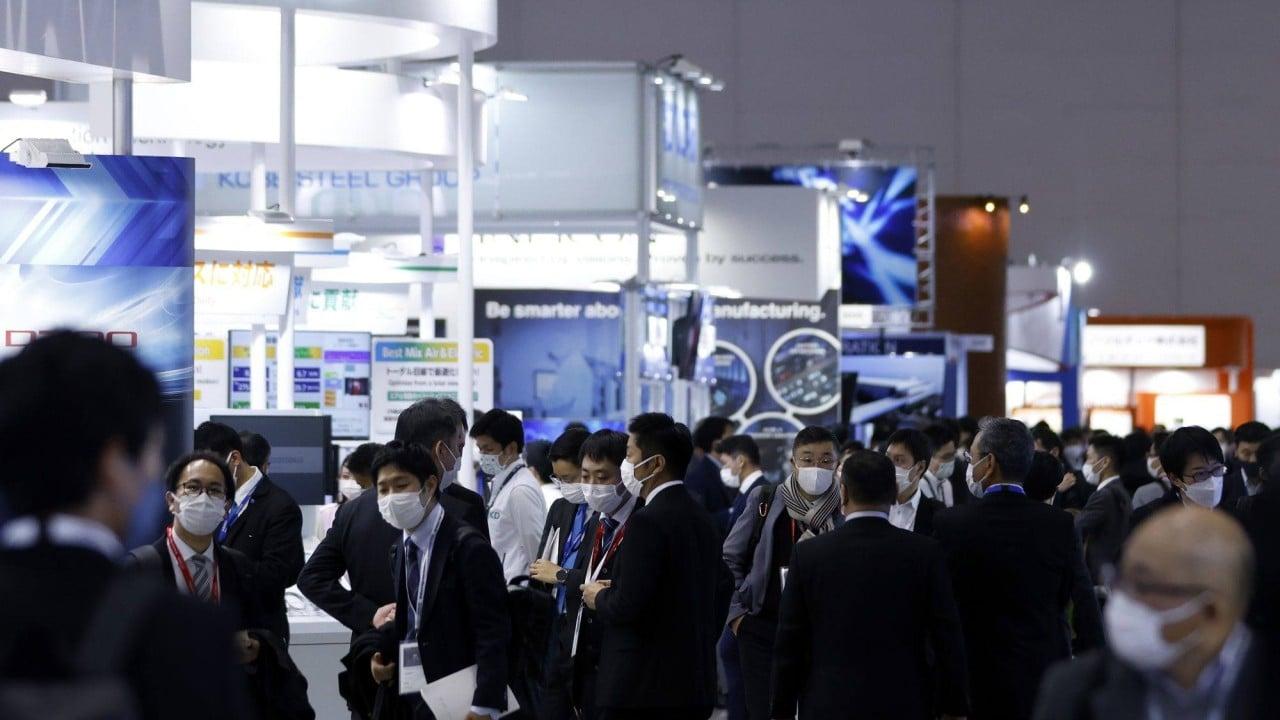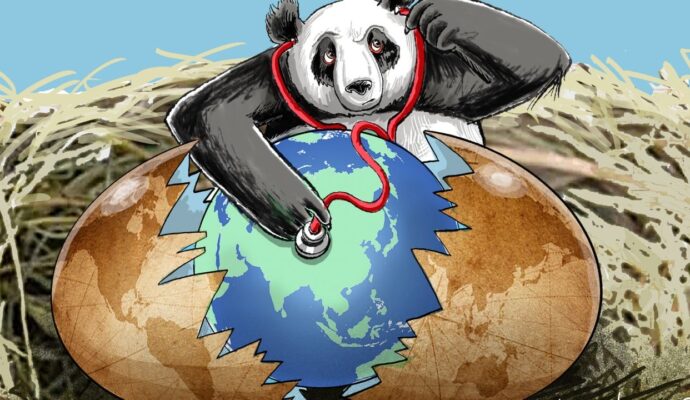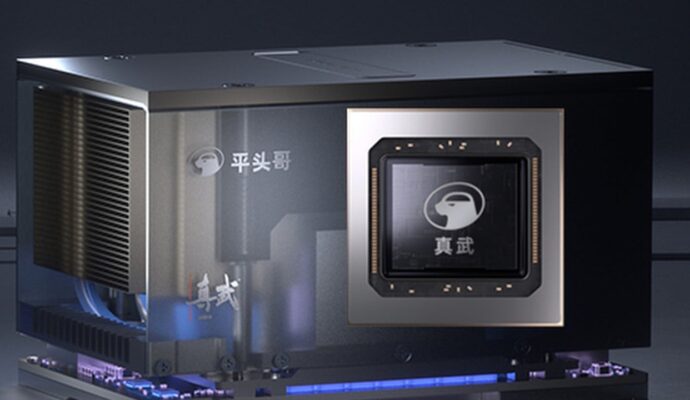
An equipment dealer in Ningbo city south of Shanghai, who resells mature node equipment made by Nikon and Canon, said he also noticed a rise in enquiries from customers recently.
Tokyo is set to introduce updated export controls “this spring”, according to a report by Japanese news agency Kyodo, citing multiple unidentified government sources. Under an amended government order, export of cutting-edge chip equipment will be subjected to approval by Japan’s trade ministry, the report said.
A Tokyo-based sales representative, who helps his company sell Japan-made equipment to Chinese clients, said any tightening of Japan’s export control is set to raise costs, difficulties and uncertainty in trade with China.
Japanese Prime Minister Fumio Kishida and US President Joe Biden on their way to the Oval Office in Washington last month. Photo: Reuters
The dealer, who asked not to be named as he was not authorised to speak with media, said advanced chip-making tools – such as Nikon’s immersion deep ultraviolet (DUV) lithography systems, as well as advanced coating, developing and dry etching hardware – are likely to be included on the export control list.
Second-hand equipment traders interviewed by the South China Morning Post also said they believe any restrictions by Japan would be narrowly applied to select advanced equipment and machines.
While Beijing has yet to issue any official comment on Tokyo’s reported plan, Global Times – a nationalist tabloid affiliated with the People’s Daily – called the potential move “self-defeating” for Japan, as the China market is very important to Japanese equipment suppliers.
Japan’s export of semiconductor machinery to China dropped 1.7 per cent year-on-year in 2022 to 1279.25 billion yen (US$9.74 billion), while its global exports of such machinery increased 4.1 per cent in the same period, according to data from Japan’s finance ministry.
Employees work on the final assembly of an ASML semiconductor lithography tool in Veldhoven, Netherlands. Photo: Handout via Reuters
If Japan aligns with Washington’s push to cut China’s access to advanced equipment, the move could deal another heavy blow to the Chinese chip sector, which has sought to diversify its supply chain amid growing US sanctions by procuring alternatives from not only domestic companies, but also Japan and the Netherlands.
Updates to US export rules, introduced in October, already limit sales of advanced off-the-shelf semiconductors to China and restrict China’s ability to make such chips at home.
While the US, Japan and the Netherlands have yet to officially disclose details of their agreement, observers speculate that it will affect Japanese DUV system suppliers such as Nikon, which makes immersion DUVs, and Tokyo Electron, which makes etching and testing equipment.
A number of so-called ArF Immersion DUV lithography systems from Dutch giant ASML will also likely become off limits to China. These machines, which use laser technology to basically carve a pre-designed circuit onto a wafer, enable lithography processing ranging from 45-nanometre to 7-nm.

